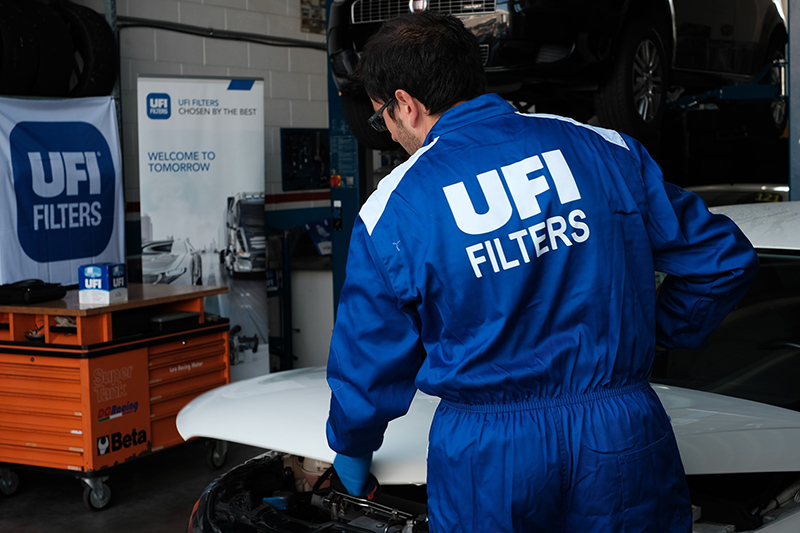
Karl Ridings, Sales Director UK & Ireland Aftermarket of UFI Filters, explains the air filter’s main functions, provides an insight into the link between filter functionality and material and shares tips for air filter replacement.
The air filter is a fundamental element in the life of a car. It purifies the air before it arrives at the combustion chamber, improving engine carburation and reducing vehicle consumption. Without this component, the engine and other downstream engine parts like the turbocharger would be exposed to the threat of impure particles such as dust and sand. These can ultimately lead to premature wear, clogging of the valves and injectors, which can cause sudden breakdowns.
In addition, the flow of air directed to the engine would exceed the required fuel demand, leading to excessive fuel consumption. Air filters from UFI that offer high filtering efficiency perform an improved air flow for optimum combustion. They prevent the alteration of fuel flow and the subsequent loss of power, as well as the increase of fuel consumption and emissions into the atmosphere.
Time for a replacement
It’s important to follow car makers’ instructions (Owner’s Manual) for the service interval of the air filters. Usually, the recommended maintenance schedule for a passenger car, that drives in normal operating conditions, ranges between 60,000 km to 120,000 km or every two years for low mileage use.
Moreover, UFI Filters recommends replacing the air filter every 12 months or 30,000 km because the filter element can be damaged by prolonged usage and in particular, due to the absorption of humidity by the pleated cellulose filter media. This can cause a loss in filtration capacity and an increase of the loss of air flow pressure, which in turn has a negative impact on engine power.
For this reason, the company has been developing new filtering materials in synthetic hydrophobic fibres – found in the new engine air filter UFI MULTITUBE which has already been chosen as Original Equipment by Porsche, Maserati, Daimler AG, FCA and Great Wall. Thanks to this hydrophobic material, the filter repels water drops and humidity, retaining its full functionality throughout the entire life cycle.
According to Karl, an UFI filter can be fitted with confidence. “Our aftermarket customers benefit from our OE experience. We have developed an aftermarket filter programme that incorporates our OE filters and our philosophy of meeting the demands of tomorrow already today.”
Replacement top tips
UFI recommends ensuring that the selected filter corresponds to the application suggested in the catalogue because the use of incorrect part numbers is a frequent cause of malfunction or even collapse of the filter. The person performing the replacement should follow service procedures as suggested by the vehicle manufacturer and filter element manufacturer in order to achieve convenient service operations and prevent functionality issues. Particular fitting mistakes that can be found:
- Residues in the filter housing are not sucked up and the inside of the housing is not cleaned
- The replaced filter is not perfectly sealed at the edges e.g., this can occur when the new filter is not the same as the one being replaced
- Hoses or ducts disconnected previously for easier filter replacement have not been (properly) reconnected
- Air filter is cleaned instead of being replaced – the use of compressed air makes the filter more porous, permanently compromising it
Damaging particles can enter the engine as a result of poor filtration by air filter. Poorly fitted air filters can compromise engine performance, reliability as well as increase both fuel consumption and harmful emissions.
Step-by-step replacing the air filter
1. Unscrew the airbox screws
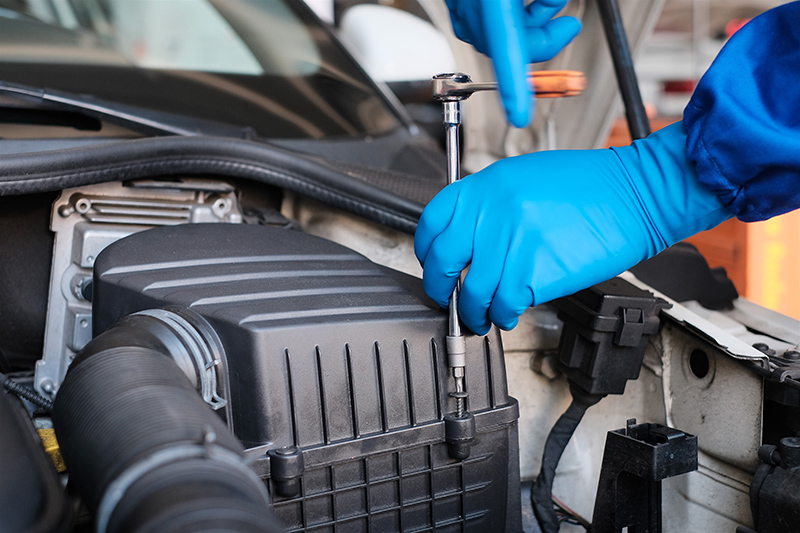
2. Detach the fixing band and open the airbox
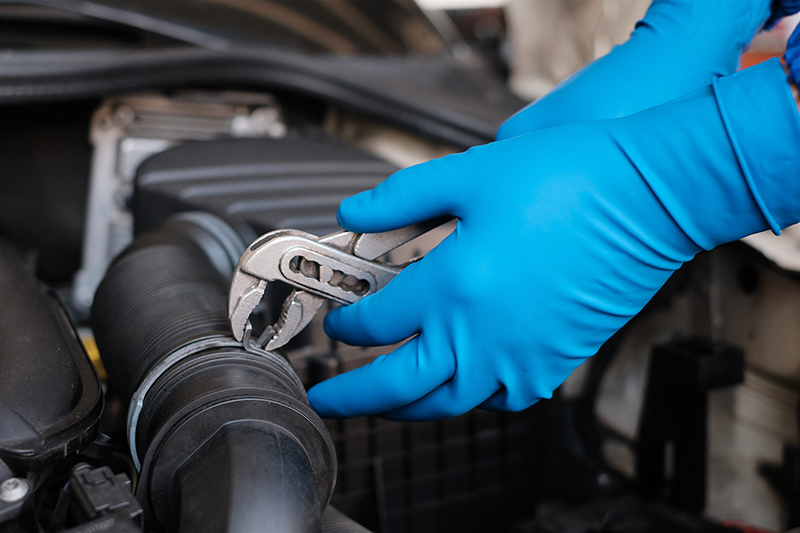
3. Remove the air filter by unscrewing it from the joints
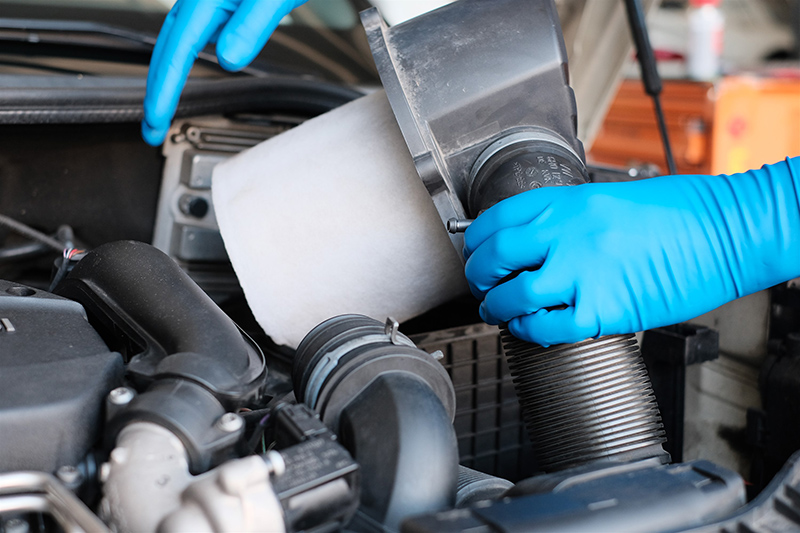
4. Check the compatibility between old and new filter
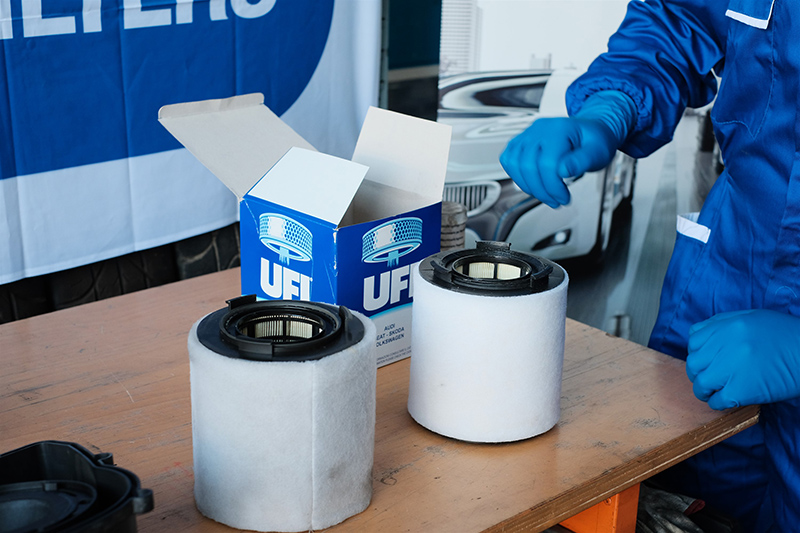
5. Insert the new filter in the airbox and reconnect the pipes
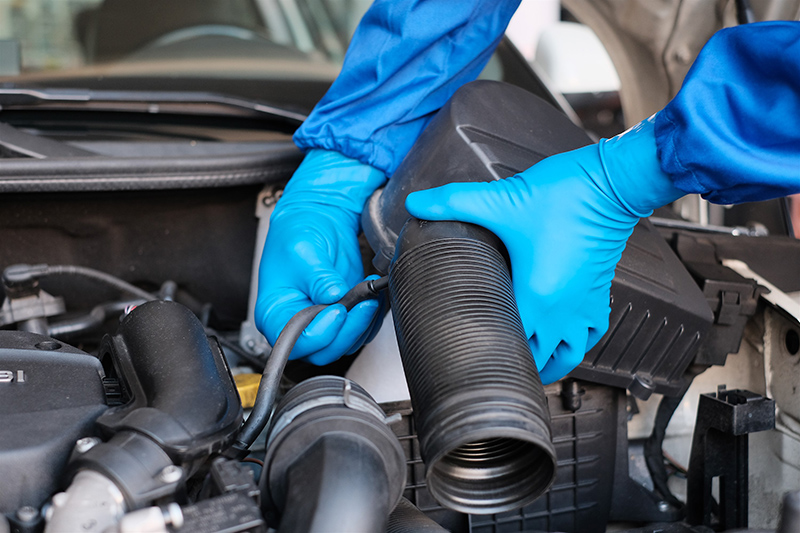
6. Tighten the airbox screws
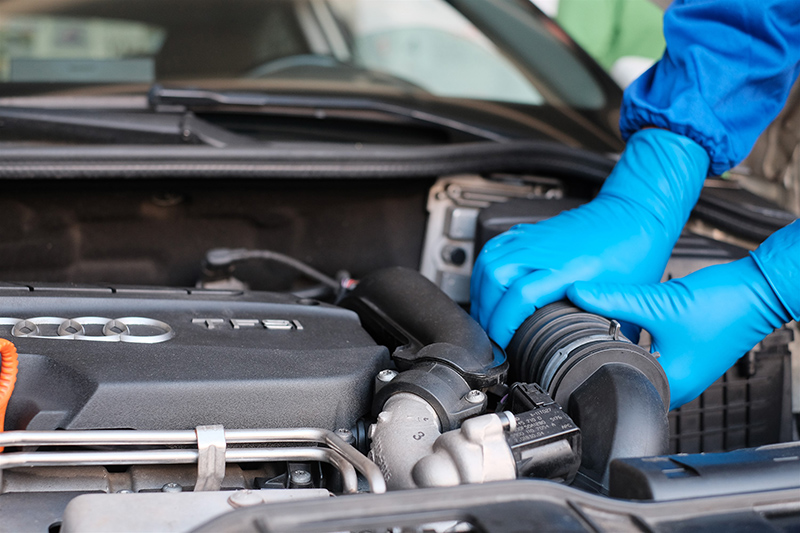
7. Finally, check the perfect fitment of the assembled parts
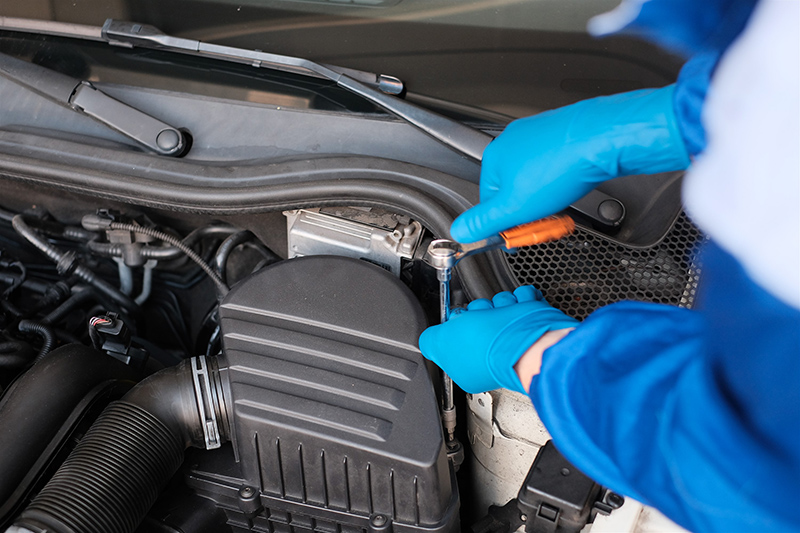
The air filter is available in the aftermarket and listed in the print and online catalogues, product code UFI FILTERS 27.621.00. Initially designed for an Audi A1, it is compatible with Volkswagen Polo, SEAT Ibiza V and Škoda Fabia II.









